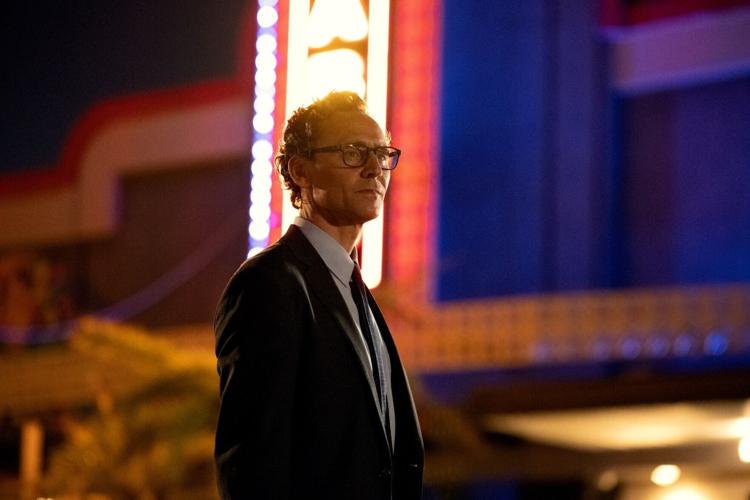Director Mike Flanagan may understand Stephen King’s darker side better than most, but he also has a good handle on the author’s sentimental bent.
In “The Life of Chuck,” he gets a chance to mine both.
Here, we discover, the end of the world seems imminent — cities are falling into the sea, the internet is crashing, streets are chaos. And yet, billboards appear congratulating Chuck Krantz on “39 great years.” Who is Chuck Krantz and why is he marking 39 years?
That’s where “Chuck’s” reverse storytelling takes some getting used to. An accountant by trade, Krantz (Tom Hiddleston) appears to have lived an uneventful life. Yet in the second chapter of the story, we see him spontaneously dancing on the streets of Alabama. There, dark thoughts disappear and we realize it’s one of those seminal moments in a life.
People are also reading…

Tom Hiddleston pulls a woman from a crowd on the street after he starts dancing to a drummer in "The Life of Chuck."Â
The dance (which later includes Annalise Basso) is a joyous expression. Chuck offers up a series of moves — including the moonwalk — which prompts more questions.
Then, Flanagan flashes back to Chuck’s childhood and we discover he was never happier than when he was killing it on a dance floor. The moments (with Benjamin Pajak as a younger Chuck) are just as exhilarating. Pajak does a fine job matching Hiddleston, giving the character depth, and staking a claim to older influences — like his grandparents (Mark Hamill and Mia Sara).
In another chapter, we get a supernatural vibe, but Flanagan doesn’t press this like he would for a more traditional horror film. Instead, it’s a reference of sorts that helps us understand the Chuck Krantz trajectory.

Tom Hiddleston plays an unremarkable man in "The Life of Chuck."Â
Other characters — including former lovers (played by Chiwetel Ejiofor and Karen Gillan) — talk about the end of the world and what this means for us. As roundabout as it may seem, the end of Chuck Krantz is a wake-up call for us. What matters most in life? What stands out when that final curtain starts falling?
And that’s where “The Life of Chuck” becomes much more than a story told in reverse. Flanagan uses no-nonsense Nick Offerman as his narrator who helps us remember key points in the man’s life.
While that odd “don’t go in the room” segment has its place, it’s what keeps “Life of Chuck” from edging up to “Stand By Me” as one of those great novella-turned-movie outings from King’s oeuvre. It’s still a touching, heartfelt movie, but the room where it happened could have used less horror film extras to leave an impression.
Hiddleston who, surprisingly, isn’t given much dialogue or even long scenes, makes an impact with his stellar dancing. He’s playing an accountant, but under the crisp lapels of his suit beats the heart of a hoofer. He sells it well and makes you want an encore.
Where “Life of Chuck” really succeeds is in passing the torch to others who help create the character (including Jacob Tremblay and Pajak). They’re just as invested and responsible for making this a film that can prompt viewers to reflect, too.
“The Life of Chuck” is an eye-opener.



















